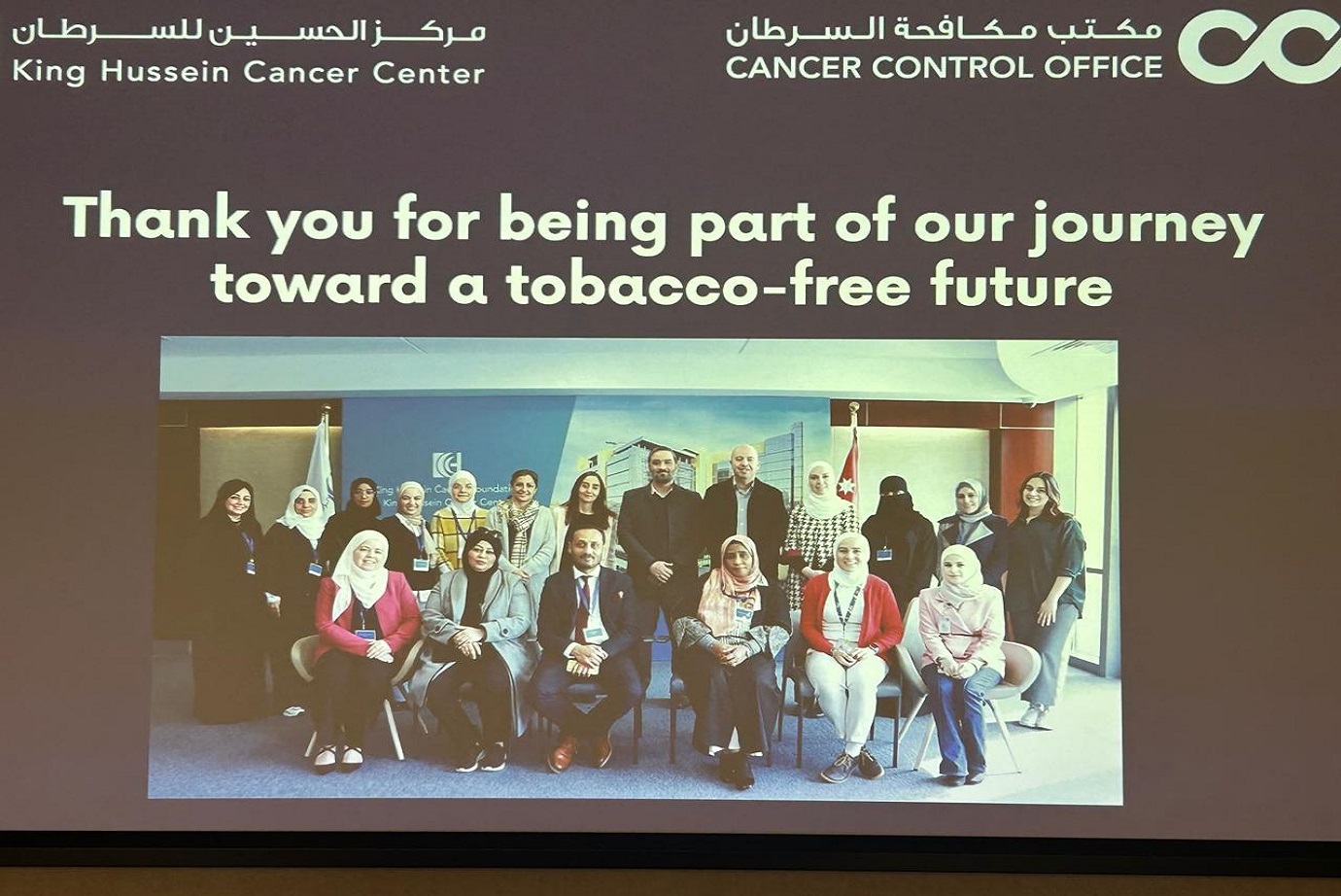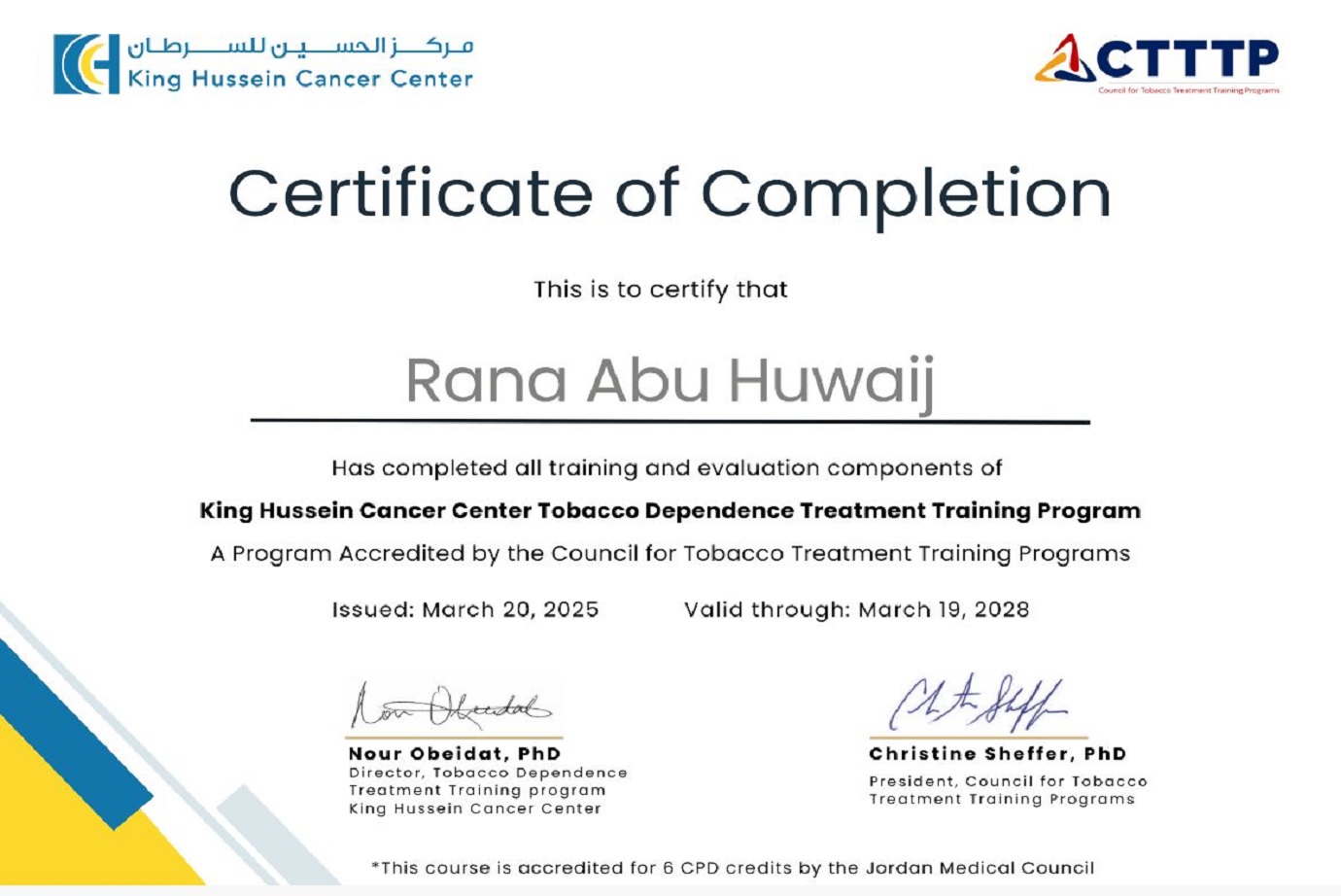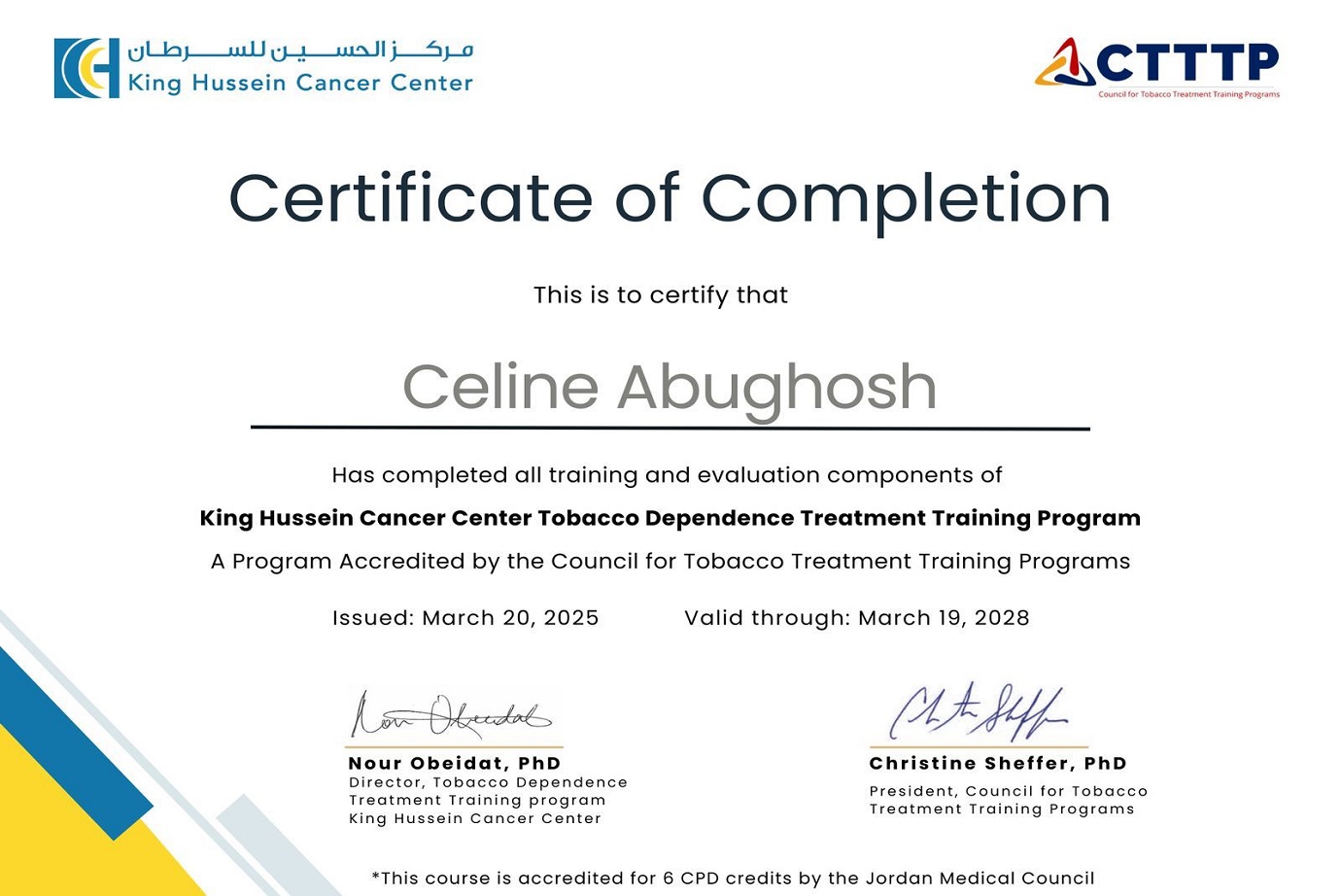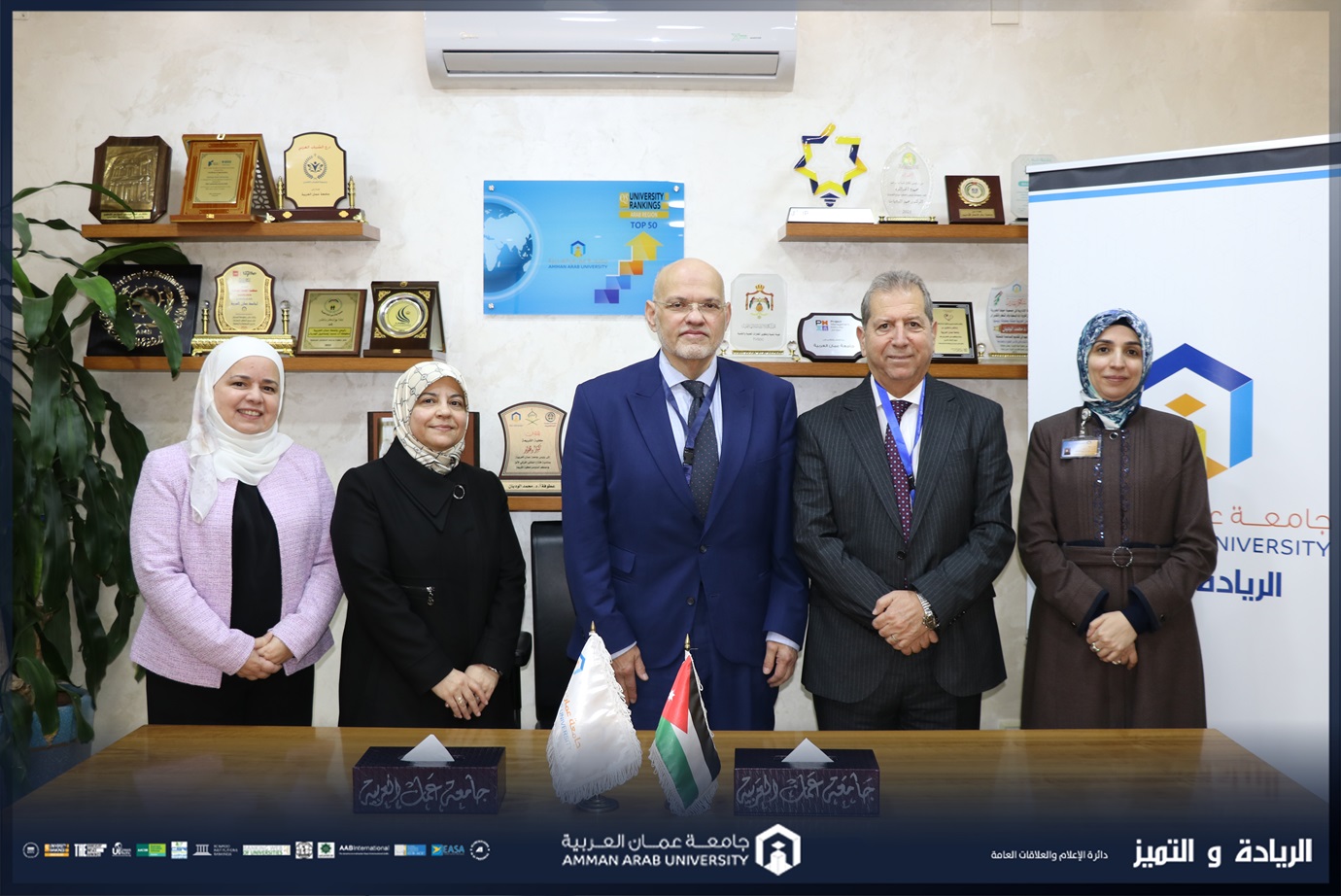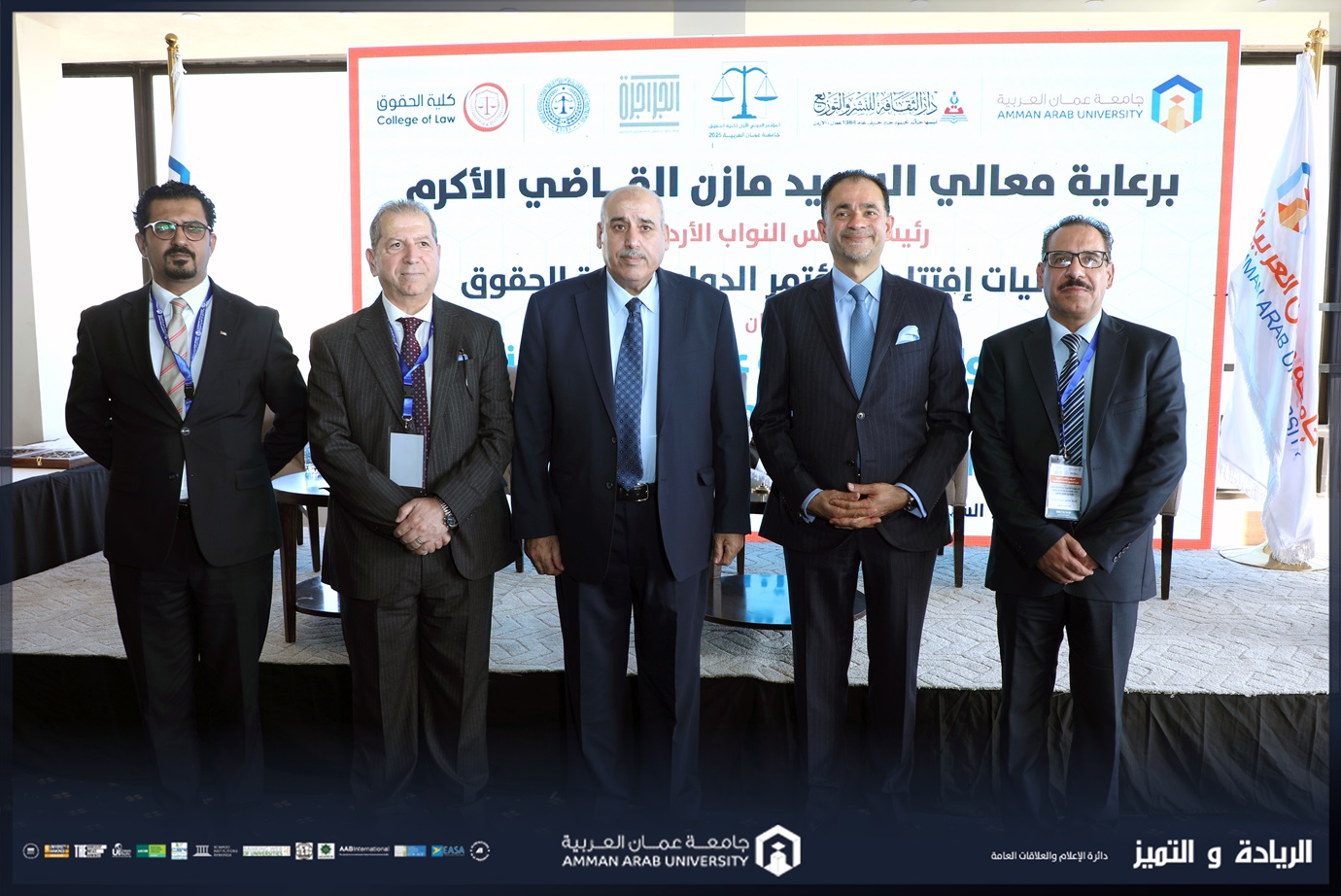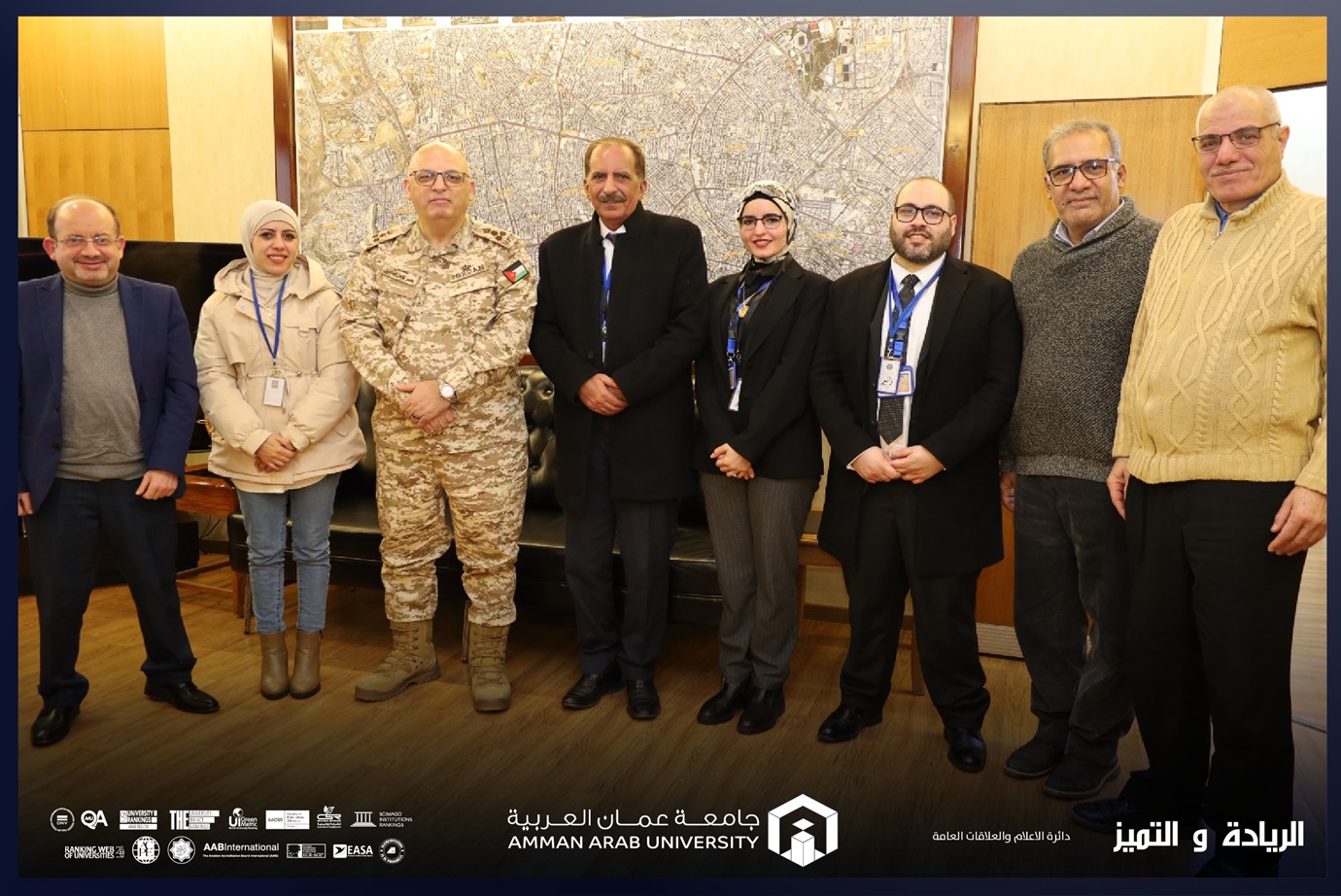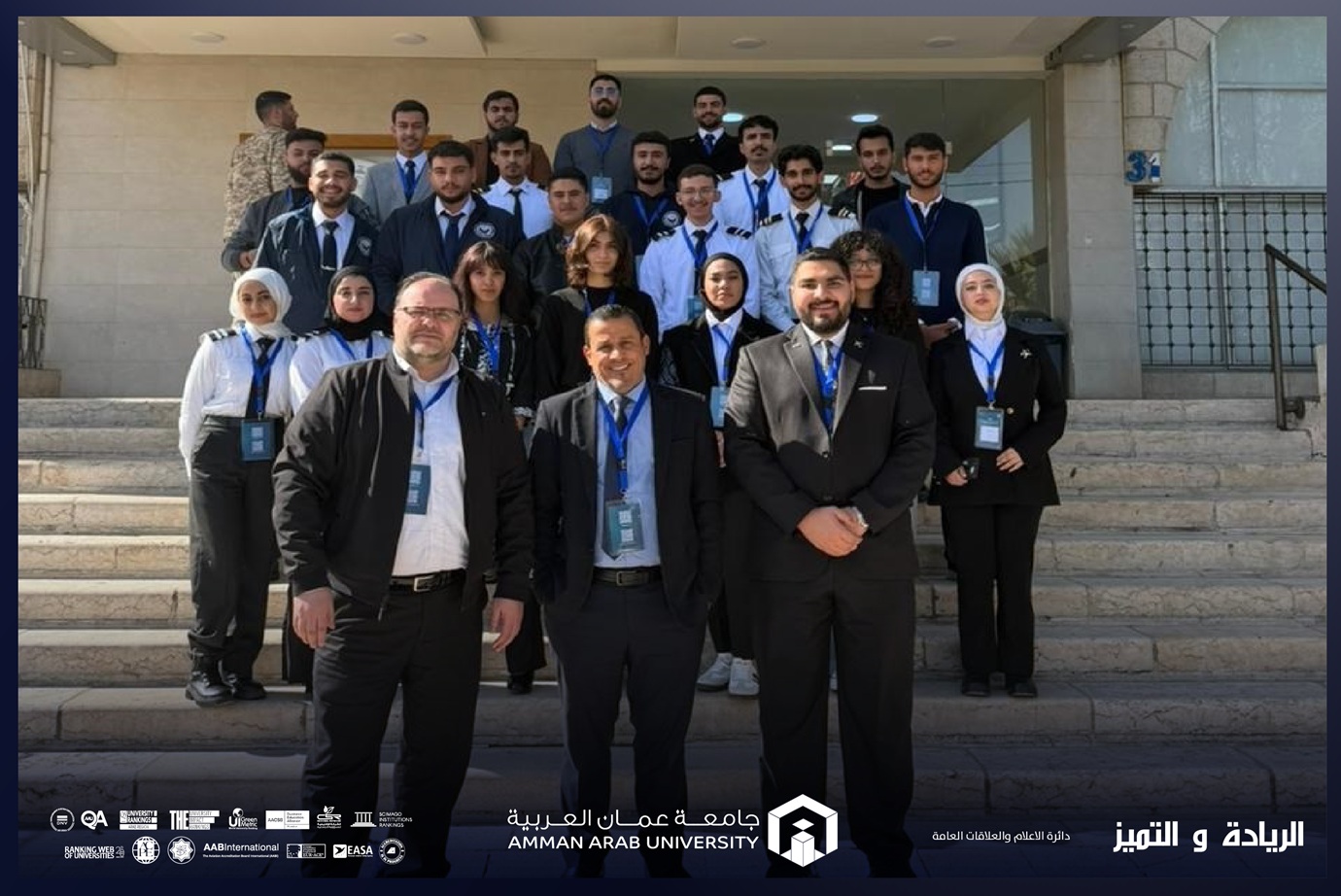
Amman Arab University Pharmacy Department Maintains Leadership: Two Certified Tobacco Treatment Specialists at Smoking Cessation Clinic
Demonstrating its full commitment to implementing tobacco control strategies in line with Higher Education Council recommendations and its dedication to providing optimal healthcare services for students and staff, Amman Arab University has earned the "Tobacco Treatment Specialist" certification jointly awarded by the United States and King Hussein Cancer Center (KHCC).
Prof. Dr. Rana Abu Huwaij, Dean of the College of Pharmacy and Chair of the University's Smoking Cessation Committee, along with Clinical Pharmacist Dr. Seline Abughosh, successfully obtained the certification after completing an intensive five-day training program (February 16-20) on tobacco addiction treatment. Notably, this marks the first time this U.S.-accredited training program has been conducted outside the United States, with participants receiving dual certification upon fulfilling all requirements.
The comprehensive training combined theoretical sessions with practical activities, enabling participants to develop expertise in tobacco dependence treatment. Key topics included:
Pharmacotherapy and behavioral interventions, Relapse prevention strategies, Case studies demonstrating effective integration of behavioral and pharmacological treatments, Latest scientific and clinical approaches to nicotine addiction management.
Risks associated with prevalent products like hookah and electronic nicotine delivery systems (ENDS)Development of personalized treatment plans combining behavioral and medical therapies with long-term support strategies, The program featured broad international participation from Qatar, the UAE, and Sudan, enhancing participants' ability to design and implement evidence-based treatment plans aligned with global best practices. It also facilitated valuable knowledge exchange between trainees and international experts.
This achievement reinforces Amman Arab University's ongoing anti-tobacco efforts and supports the activities of its recently established Smoking Cessation Clinic, reflecting the institution's commitment to the health and wellbeing of its academic community.



